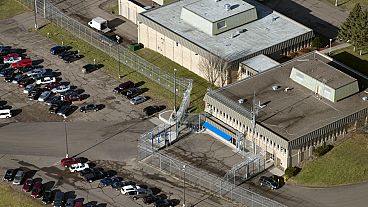The unemployment rate in Germany is creeping back up to levels seen during the early phase of the pandemic.
The number of Germans without jobs increased by 18,000 on a seasonally-adjusted basis in July, according to the Bundesagentur für Arbeit (BA) - Germany's National Employment Agency.
Without the adjustment, the number of unemployed individuals rose by 82,000 month-to-month, meaning a total of 2.81 million people were without work.
Compared to July last year, Germany counted 192,000 more unemployed citizens.
It's normal for the jobless rate to rise in the summer as hiring slows during the holiday period. Even so, this month's jump is larger than usual.
"The weak economic development is putting pressure on the labour market," said Daniel Terzenbach, the BA's regional director. Unemployment has therefore "increased more than usual."
Germany’s seasonally-adjusted rate of unemployment, which held stable at 6% in July, is creeping up to highs seen during the pandemic.
Following a decline in early 2021, the rate bottomed out in early 2022 and has been steadily rising since this point.
Due to the importance of Germany’s industrial sector, the country's economy was battered by the energy crisis that escalated in 2022, aggravated by Russia's invasion of Ukraine.
Germany has since been dubbed the "sick man of Europe" due to its dismal growth figures.
Since the third quarter of 2023, the nation's year-on-year GDP growth rates have been in contraction territory.
Figures released on Tuesday show that in the second quarter of 2024, output contracted by 0.1%.
This is both compared to the previous three months and compared to the second quarter of 2023.
During the economic downturn, many German companies have held onto workers.
This suggests that, when activity does finally start up again, firms will utilise existing employees before hiring more staff.
Inflation data, released yesterday, also spelled bad news for Germany.
The rate of price growth rose 0.3% month-over-month, the highest figure seen in three months.















